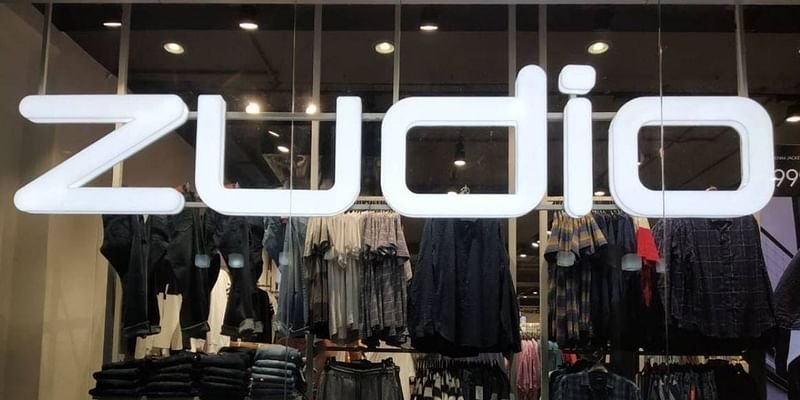Startup
Rockstar Games: The Company with the Most Stringent Privacy Policy in the World

In the shadowy corridors of the gaming industry, one company stands out for its unmatched secrecy and privacy protocols: Rockstar Games. Famous for creating blockbuster titles like Grand Theft Auto (GTA) and Red Dead Redemption, Rockstar is as renowned for its games as it is for its obsessive commitment to confidentiality. Let’s delve into why Rockstar Games might just have the most stringent privacy policy in the world.
The Infamous Hack of 2022
On September 18th, 2022, a teenager managed to infiltrate Rockstar Games’ internal chat systems using simple tech tools and adept social engineering skills. The result? A massive leak of early development footage for the highly anticipated GTA VI caused Rockstar an estimated $5 million in damages and triggered a widespread lockdown of their offices and infrastructure. This breach not only exposed the vulnerabilities in Rockstar’s security but also highlighted the extreme lengths the company goes to maintain secrecy.
Rockstar’s Global Operations
Rockstar operates through 10 active studios worldwide, with its main headquarters in New York. These studios contribute to Rockstar’s major projects, with each location playing a specific role:
- New York HQ: Home to writers, the creative team, and the publishing department. The top executives, including Rockstar’s president and his brother, the former head writer, operate from here, protected by three layers of security. Both executives avoid the media, have no social media profiles, and rarely make public appearances.
- Los Angeles and Long Island Studios: Locations for performance capture studios where actors perform motion capture and voice acting.
- Rockstar North (Edinburgh): The main hub for game development, particularly known as the birthplace of GTA.
- San Diego Studio: Focuses on graphics and the in-house RAGE game engine, also known for developing Red Dead Redemption and the canceled Agent game.
- Lincoln Studio: Responsible for translations and quality assurance, known for its strict no-phone policy and closed blinds to prevent spying.
- Leeds, New England, Toronto, and Dundee Studios: Each with specific roles ranging from developing DLCs to recovering from thefts of equipment.
- India Studio: One of the largest with nearly a thousand employees focusing primarily on art and design, and rumored to be the point of access for the GTA VI hacker.
The Breach and its Fallout
The hacker, Arion Kurtaj, part of the online hacking group Lapsus, independently breached Rockstar by deceiving an employee to gain access to internal communications. This resulted in 90 development clips being leaked online. The breach caused Rockstar to implement even more stringent security measures, costing thousands of staff hours and millions of dollars.
Extreme Measures for Secrecy
Rockstar’s approach to secrecy is likened to that of the CIA and FBI. The company employs non-disclosure agreements (NDAs) more stringent than those used in top-tier movie productions, such as Marvel films. Actors working on Rockstar projects are forbidden from posting anything on social media that might hint at their involvement with the company. The NDAs are so thorough that even bathroom visits during production require an escort, and actors often don’t realise they’re working for Rockstar due to project codenames.
Instances of legal action taken by Rockstar’s parent company, Take-Two Interactive, further emphasise their commitment to protecting their intellectual property. These include suing review sites, temporarily banning single-player modding, and even raiding the homes of individuals suspected of breaching their security.
The Culture of Secrecy
Rockstar’s secretive culture extends beyond its privacy policies. The company has ceased attending conferences, discontinued community livestreams, and removed comment options from their newswires. This shift towards isolation is a strategic move to maintain control over their narrative and prevent leaks.
Despite their reclusiveness, Rockstar’s influence in the entertainment industry remains unparalleled. Their minimal communication strategy and infrequent updates serve as deliberate marketing tactics to manage hype and ensure maximum impact upon release.
Rockstar Games’ stringent privacy policies and extreme measures to maintain secrecy set them apart in the gaming industry. From handling leaks with military precision to enforcing ironclad NDAs, Rockstar’s approach is a testament to their commitment to protecting their creative assets. While their methods may seem draconian, they have proven effective in preserving the integrity of their highly anticipated projects.
As Dan Houser, Rockstar’s co-founder, once said, “I think you gain something by not showing how they’re made. As much as we might lose something in terms of people’s respect for what we do, their enjoyment of what we do is enhanced.” This philosophy underscores Rockstar’s belief that the magic of their games lies in the mystery of their creation.
Startup
Trent Q2 profit grows 47% to Rs 335 Cr; sales jumps 39.3%

Tata Group retail firm Trent on Thursday reported a 46.9% growth in its consolidated net profit to Rs 335.06 crore for the second quarter ended September 2024.
The company had posted a consolidated net profit of Rs 228.06 crore a year ago, according to a regulatory filing from Trent, which operates retail stores under brands like Westside, Zudio, and Star.
Its consolidated revenue from operations increased 39.37% to Rs 4,156.67 crore during the quarter under review. It was Rs 2,982.42 crore in the year-ago period, it added.
Trent’s total expenses rose 48.49% to Rs 3,743.61 crore in the September quarter.
As of September 30, Trent was operating 226 Westside, 577 Zudio and 28 stores across other lifestyle concepts, the company said in an earning statement.
“During the quarter, we opened 7 Westside and 34 Zudio stores (including 1 in Dubai) across 27 cities. We also consolidated 9 Westside and 16 Zudio stores,” it added.
Its Chairman Noel N Tata said: “Consumer sentiment has remained relatively muted. This coupled with seasonality has meant that retail businesses have faced headwinds. In the foregoing context, the team has delivered strong results across brands, concepts, categories and channels in Q2”.
Shares of Trent Ltd on Thursday settled at Rs 6,498.45 on BSE, down 6.54% from the previous close.
Startup
India’s QR soundbox boom: how merchant acquirers can ride the offline payment wave

“UPI account par 18 rupay prapt hue” or “Rs 18 has been deposited to your UPI account.” Just when it seemed like India’s digital payments journey had reached its peak, QR codes paired with soundboxes emerged, showing us that we have only begun.
The familiar chime of these soundboxes now unites millions of UPI users across the country. Together, soundboxes and QR codes offer seamless, real-time payment confirmations, which makes them indispensable resources for merchants.
Why QR-based soundboxes work in India
The adoption of QR codes is rapidly expanding over conventional Point of Sale (PoS) devices, not only in Tier I cities, but also in Tier II, Tier III, and rural areas. In fact, QR code deployment increased by 34% in FY24 to over 350 million. PWC attributes the shift to factors such as high rental costs, MDR (merchant discount rates), and the operational complexity of maintaining PoS machines.
The low cost of QR payment acceptance has also compounded challenges. Merchants may use QR codes from different providers. For merchant acquirers, this translates into higher incidence of churn and an escalation in the overall cost of acquisition, as they invest in both technology and on-the-ground sales efforts.
Hence, QR paired with soundboxes present an opportunity to strengthen merchant loyalty in offline acquisition. Instead of standalone QRs, merchants increasingly prefer QR paired with Soundboxes, as instant and reliable payment confirmations are essential — particularly for those with high foot traffic. Consider a busy sweets shop in Delhi during the holiday season. Now, sellers don’t have to wait for confirmations of UPI payments, which might lead to delays. These devices simplify the process for both customers and merchants by providing real-time, audible payment confirmation. Additionally, it also provides an additional level of security by diminishing the possibility of non-payments and fraud at checkout.
The game changer in offline merchant acquisition
According to a recent Cognitive Market Research report, India’s merchant acquiring market reached $611.21 million in 2024 and projected to grow at a CAGR of 12% between 2024-2031, driven by regulatory support. Another report by Kearney highlights that retail digital payments is expected to double, from $3.6 trillion in FY24 to $7 trillion by FY30.
As this growth unfolds, the challenge for acquirers—both banks and merchant aggregators — will be how they capture this opportunity. Given the operationally intensive nature of the business scaling profitably is far from simple. For example, if an acquirer wants to offer Soundboxes to its merchants, they need a reliable device vendor, manage inventory, across remote merchant locations nationwide, partner with logistics providers for shipment, test every dispatched unit, and establish merchant support operations. Setting up this infrastructure could delay their go-to-market, increasing the risk of losing merchant-led businesses to competitors. The traditional ‘do-it- yourself’ model, where acquirers handle everything from merchant acquisition to backend operations, is increasingly unsustainable and non-core to a merchant acquirer’s business.
Offline Payments as a Service (PaaS) simplify payment operations for acquirers by handling the entire merchant and transaction lifecycle. This includes onboarding, device management, and transaction processing. By integrating business and tech operations with advanced payment software, PaaS solutions allow acquirers to focus on strategic growth rather than operational complexities.
Through a managed services model, acquirers can significantly reduce merchant acquisition costs by digitizing the onboarding process and streamlining due diligence. They also handle device logistics, including shipping, inventory, and support. For example, a merchant in a remote rural area needing assistance with a device like SoundBox receives instant support through the managed services provider, who ensures resolution within contracted service levels, supporting uninterrupted business for the merchant.
Additionally, a dedicated UPI Switch for merchant transactions can help acquirers process transaction volumes. A dedicated switch can reduce load on the UPI switch, ensuring smooth, efficient management of growing transaction volumes and delivering a seamless payment experience. PaaS also provides value added services such as recon /dispute and complaints management, helping acquires to promote stickiness among merchants.
Scan and pay
P2M (person-to-merchant) payments, which comprise 60% of UPI transactions, offer a substantial opportunity for expansion, particularly in non-metropolitan regions. This potential is aligned with the government’s and RBI’s commitment to promoting financial inclusion.
From your neighbourhood vegetable vendor to the supermarket in your locality, we are seeing or rather hearing soundboxes buzzing everywhere. It’s an example of how offline merchants are keen to embrace digital solutions that simplify their transaction processes. The combination of QR codes and soundbox technology has emerged as a standout innovation in this space and PwC’s projects that 54 million such devices will be deployed by FY29.
As a new operating model, PaaS will help acquirers drive their go-to-market strategies and strengthening their market presence while reducing capital expenditure significantly. By streamlining operations and offering scalable solutions, PaaS not only supports business growth but also fosters a more inclusive financial ecosystem that benefits all stakeholders.
(Deepak Chand Thakur is the CEO & Co-founder of NPST)
(Disclaimer: The views and opinions expressed in this article are those of the author and do not necessarily reflect the views of YourStory.)
Startup
Prabhuji snack maker Haldiram Bhujiawala raises Rs 235 Cr

Kolkata-based packaged snack company Haldiram Bhujiawala has raised Rs 235 crore through a private placement from Pantomath’s Bharat Value Fund (BVF) for a minority stake.
The snacks maker, which retails under the ‘Prabhuji’ brand, registered a revenue of Rs 473 crore for FY23 while profits declined to Rs 1.7 crore for the year, according to data sourced from research platform Tracxn.
The company was established in 1992 by Manish Agarwal and Prabhu Shankar Agarwal and retails Haldiram’s Prabhuji and internet-first brand, . It has a portfolio of over 100 SKUs, with strong recognition in the Eastern and North Eastern markets. It also operates quick service restaurants in West Bengal and other North Eastern states.
“In the last 60+ years, we have cultivated a loyal customer base by offering delectable snacks and sweets. Our company has been a trendsetter, revolutionizing food habits and tastes of India,” said Manish Agarwal, Managing Director of Haldiram Bhujiawala in a statement.
He added, “Leveraging our industry insights alongside BVF’s support, we are strategically positioned to enhance shareholder value and drive growth. This partnership lays a solid foundation for generating long-term economic benefits, ensuring a prosperous future for all stakeholders.”
The snack maker competes in a market dominated by larger players like Nagpur-based Haldiram, Annapurna Snacks, and others. Haldiram Bhujiawala claims to have a distribution network of approximately 2000 distributors servicing over two lakh retailers across West Bengal, Bihar, Jharkhand, and North East India. It also operates 19 retail outlets and 60 franchise stores.
The snacks market is estimated to be a Rs 42,600 crore market by FY24, with a CAGR (Compound Annual Growth Rate) of 11%, dominated by packaged snack makers, according to data shared in the statement.
“We are pleased to partner with Haldiram Bhujiawala Limited. With over six decades of market insight since its founding as a proprietorship in 1958, the company has a deep understanding of consumer behaviour and market trends,” said Madhu Lunawat, CIO of BHarat Value Fund.
He added, “The new generation’s sharp focus on the modern brand, ‘Prabhuji,’ is particularly noteworthy. We are highly optimistic about the food, FMCG, and consumer goods sectors, and Haldiram is well-positioned to achieve substantial growth in the years ahead.”
This marks BVF’s sixth overall investment in the mid-market segment, backing profitable growth companies. It had also recently backed Millenium Babycares, maker of the flagship brand Bumtum.
-

 Startup Stories1 year ago
Startup Stories1 year agoWhy Millennials, GenZs Are Riding The Investment Tech Wave In India
-

 Startup Stories1 year ago
Startup Stories1 year agoStartups That Caught Our Eyes In September 2023
-

 Startup Stories1 year ago
Startup Stories1 year agoHow Raaho Is Using Tech To Transform India’s Fragmented Commercial Trucking
-

 Startup Stories1 year ago
Startup Stories1 year agoMeet The 10 Indian Startup Gems In The Indian Jewellery Industry’s Crown
-

 Crptocurrency8 months ago
Crptocurrency8 months agoLither is Making Crypto Safe, Fun, and Profitable for Everyone!
-

 Startup Stories1 year ago
Startup Stories1 year agoHow Volt Money Is Unlocking The Value Of Mutual Funds With Secured Lending
-

 Startup Stories1 year ago
Startup Stories1 year agoWhy Moscow-Based Kladana Considers Indian SME Sector As The Next Big Market For Cloud Computing
-

 E-commerce1 year ago
E-commerce1 year agoTop Online Couponing Trends To Watch Out For In 2016




